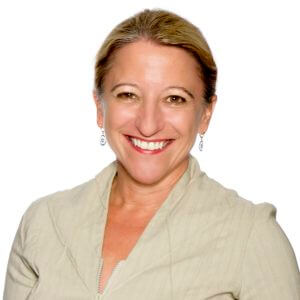Critical Thinking as a Leadership Discipline
Louise Broekman, Founder and CEO - Advisory Board Centre

Have you felt the overwhelming sense that you are operating at 100% of your mental capacity? While overcommitting and overscheduling is
part of the problem for leaders, we are also faced with the 24-hour news cycle.
We have vast arrays of information coming at us at a rapid pace and as leaders we are expected to act and make informed decisions- swiftly.
The current environment has shown the need for clear leadership, quality decisions and considered action. It’s also highlighted the high price for getting it wrong. The tension between informed decision making and rapid response is tricky to navigate.
How are leaders supposed to filter out all the noise to focus on what’s meaningful for them?
Critical thinking has many definitions but the one that resonates with me is “careful thinking directed to a goal”.
Critical thinking enables leaders to sift through the conflicting opinions and economic indicators to stay informed, evaluate information against their goals and make quality decisions. While critical thinking must be applied as an individual, leaders need to invest and nurture frameworks that allow critical thinking to be shared by the collective.
Create Thinking Systems
There are advocates of a process led approach to critical thinking - “observe, imagine, infer, experiment, analyse, decide”. This is an example of systems thinking. Systems thinking is designed with a process intent. It provides a valuable, often repeatable, flow for HOW things work within an organisation.
Taking a process led approach to critical thinking can actually defeat the purpose - we stop thinking and move straight into doing.
I want you to consider how you can create “thinking systems” for your organisation. Thinking systems are principles - led. You identify the key principles that will underpin your thinking system and put them into practice.
 An
Advisory Board is one example of a thinking system.
An
Advisory Board is one example of a thinking system.
The principles that underpin the ABF101 Advisory Board Best Practice Framework include clarity of scope, independence, fit for purpose, structure and discipline and measurement.
These principles apply to Advisory Boards but can also be adapted to thinking systems appropriate to your organisation such as Governance Boards, Committees, Executive Meetings, project teams, etc.
Thinking systems can support critical thinking but as a leader you still need to deal with the feeling of standing in front of a firehose flow of information. How can you effectively filter and distil down the key information that you need to think about critically?
Know Your Business
Be clear on your business and strategic objectives. Carefully evaluate information through the lens of your business strategy, your internal capabilities and future goals. When you know your business, you can turn down the volume on noisy outlier information.
Know Your Markets
Knowing your market and customers makes it easier to ignore doomsday commentary. You are less likely to be blindsided by market disruptors, new competitors or advances in technology. Get close to your customers, be curious and never get complacent.
Know Who You Can Trust
Commentators, media, advertisers……who can you trust? Information saturation is real, and it can stifle critical thinking and problem solving within businesses. Seek out the trusted information sources and advisors that have the current skills and knowledge in the areas that are key priorities for your business.
Invest in Critical Thinking
In business, there is no return without investment. Support yourself as a leader by investing in critical thinking. Invest your time, your effort and where necessary your funds into areas that are going to support you and your organisation to not just survive but to thrive.

